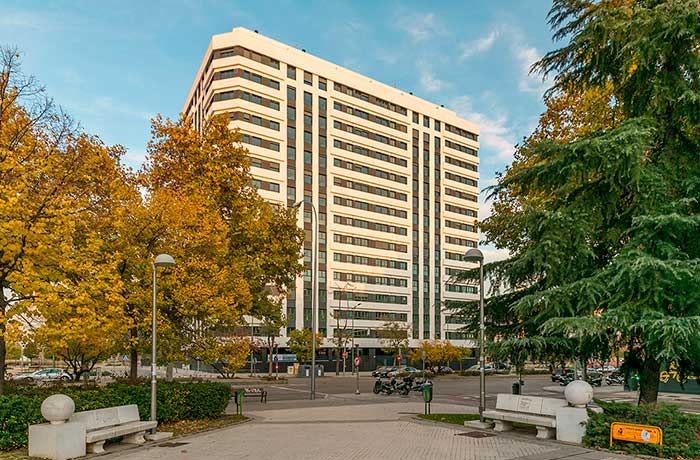In its delivered developments, Vía Célere has already saved the energy consumed by 683 football stadiums
- The developer has achieved these savings through the application of innovative systems, such as geothermal energy, aerothermal energy, underfloor heating and dual-flow ventilation.
The homes delivered by Vía Célere have saved more than 17 million kilowatt hours of energy. This figure is equivalent to the average energy consumption of a football stadium in 683 matches.
In the same way, this energy efficiency has also had a great impact on the reduction of CO2 emissions from the homes that the company has delivered to date, specifically, 4,230 tonnes have ceased to be emitted into the atmosphere, which amounts to the emissions that an average vehicle would produce by circling the earth 2,733 times.
This data, which Vía Célere has made public on the occasion of World Energy Efficiency Day on 5 March, is the result of the many innovations introduced by the company that aim to optimise the energy consumption of its developments to the greatest extent possible.
“Right from the start we have opted for innovation as a method for achieving maximum energy efficiency in our developments. Thanks to this intention we have incorporated renewable energies in our construction, such as geothermal energy and aerothermal energy, as well as better insulating materials, underfloor heating and dual-flow ventilation”, said Carlos Valdés, Director of CSR at Vía Célere.
How is this energy efficiency achieved?
The reduction in energy consumption of the Vía Célere developments is due, to a great extent, to the obtaining of the highest energy rating certificates, A and B,and therefore, even though we work on the development as whole to guarantee sustainability, these measures affect each home individually.
To achieve this energy efficiency the developer has been a pioneer in research and the introduction of insulating materials that prevent internal heat loss, which it has complemented with a dual-flow ventilation system that makes it possible to refresh the air in the home without needing to open the windows.
Meanwhile, the use of renewable energies from the earth’s heat (geothermal) and from the air (aerothermal), combined with more efficient systems such as underfloor heating, have made it possible to increase the energy rating of its homes, while improving the comfort of those who live in them. In this respect, taking as a reference a development such as Célere Villaverde, the use of geothermal energy can achieve energy savings of up to a further 25% compared to another home with energy rating A using a gas boiler.
The importance of energy efficiency
Energy efficiency, irrespective of the economic sector in question, is one of the elements that is gaining most weight in institutional action plans, with the approval of both new national regulations, such as the National Integrated Energy and Climate Plan (PNIEC) or the future Law on Climate Change and Energy Transition and international commitments such as the EU Green Deal.
In addition to the public agenda, energy efficiency is one of the features of the homes rated most positively by customers. In fact, according to the most recent survey conducted by Vía Célere, 64.5% of Spanish people rate sustainability as quite important or very important when buying their home. While 72.6% say that they are quite or very committed to the environment.
However, this high level of interest of customers in the energy rating does not only correspond to commitment to the environment but also to the savings on the electricity bill that can be made over a year. In this respect, for example, in a standard development, with homes of around 100m2 and energy rating A in Madrid, this may involve a saving of up to €1,100 a year compared to a similar home with energy rating E.


